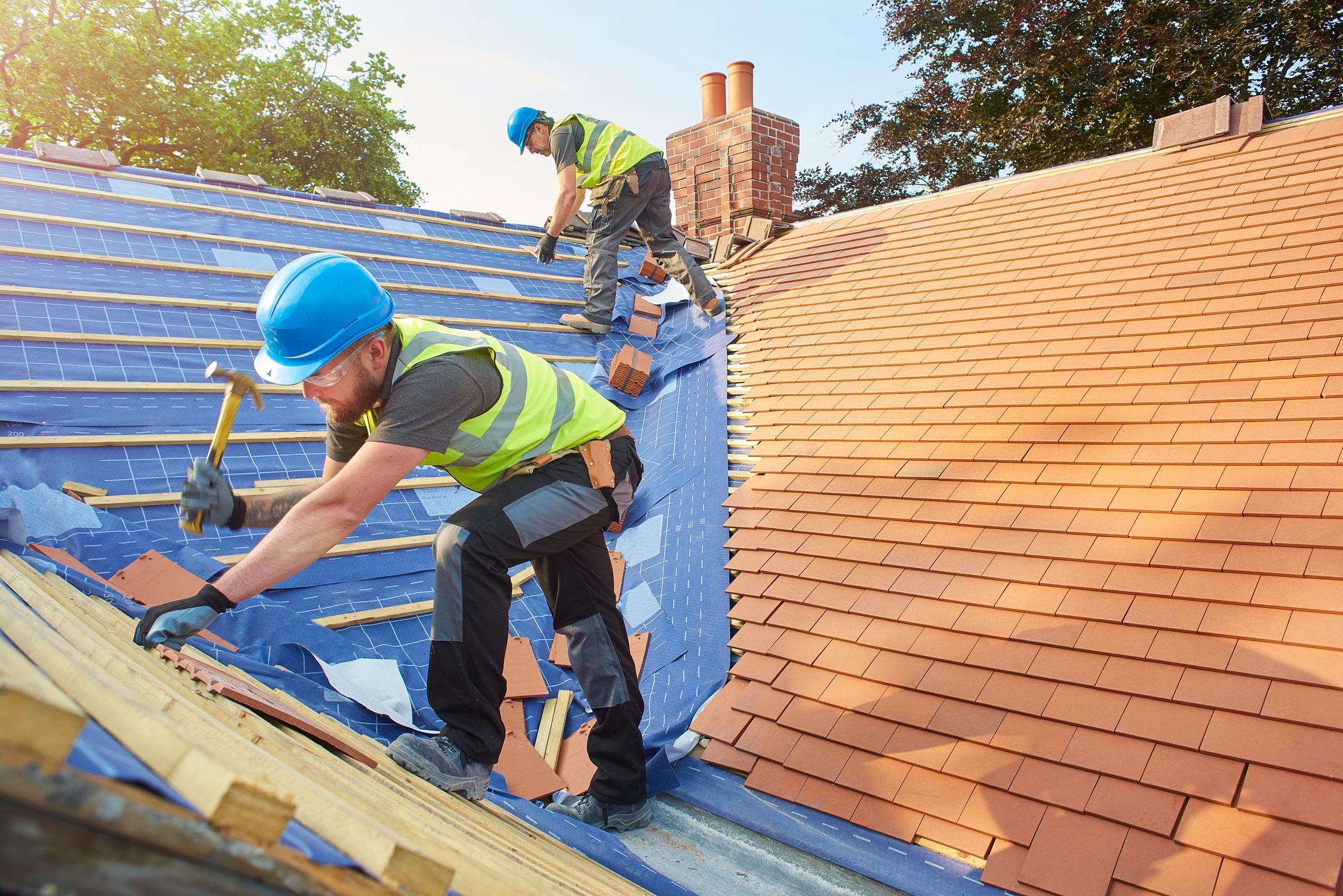What is the Most Common Type of Commercial Roofing?

When it comes to commercial properties, the Roofing System Bournemouth is one of the most important aspects to consider. A durable, efficient roof not only protects your building from the elements but also impacts energy efficiency, safety, and the overall longevity of your property. At Roofing Bournemouth, we provide expert commercial roofing services, helping businesses choose the best roofing system for their needs.
In this blog, we’ll explore the most common types of commercial roofing, including their benefits and when they’re best suited for your commercial property.
1. Flat Roofing
Best for: Most commercial buildings, including offices, warehouses, and retail spaces
Flat roofing is one of the most popular choices for commercial buildings, particularly for buildings with modern, minimalist designs. Flat roofs are ideal for properties with a low profile and are commonly found in urban environments due to their space-saving benefits.
Advantages of Flat Roofing:
- Cost-effective: Flat roofs are typically less expensive to install than sloped roofs, making them a budget-friendly option for commercial properties.
- Easy to Maintain: Flat roofs offer easy access for maintenance, inspections, and repairs, helping to prolong the life of the roof.
- Energy Efficient: When installed with proper insulation, flat roofs can help keep energy costs low by providing a more controlled internal temperature.
Common Flat Roof Materials:
- EPDM Rubber: A popular choice due to its durability, UV resistance, and ability to withstand extreme weather conditions.
- TPO (Thermoplastic Olefin): Known for being energy-efficient and reflective, helping to reduce cooling costs.
- PVC: A long-lasting option that provides great resistance against chemicals, UV light, and extreme temperatures.
Flat roofs are versatile, but they require regular maintenance to prevent water pooling, which can lead to leaks.
2. Pitched Roofing
Best for: Buildings that require better water drainage, such as those in areas with high rainfall
Pitched roofs have a noticeable slope and are often found in both residential and commercial buildings. Pitched roofs are ideal for areas where effective water drainage is crucial to prevent leaks or water damage.
Advantages of Pitched Roofing:
- Effective Water Drainage: The slope of a pitched roof helps rainwater flow off easily, reducing the risk of leaks and water pooling.
- Durability: Pitched roofs, especially those made from materials like slate or tile, are known for their longevity and resistance to the elements.
- Aesthetic Appeal: Pitched roofs are often more visually appealing and can add architectural character to a commercial building.
Common Pitched Roof Materials:
- Asphalt Shingles: A popular and affordable option for commercial buildings, providing effective protection against rain, wind, and snow.
- Clay or Concrete Tiles: Durable and long-lasting, ideal for buildings that need a more traditional look.
- Slate: Known for its elegance and longevity, though it tends to be more expensive than other options.
Pitched roofs are particularly suited for buildings in regions with heavy rain or snow, as their steep slopes help to prevent water accumulation.
3. Metal Roofing
Best for: Commercial buildings that require both durability and an industrial look
Metal roofing is becoming increasingly popular for commercial properties due to its strength, longevity, and energy efficiency. It is often used for larger industrial buildings, warehouses, and offices. Metal roofing can come in a variety of materials, including aluminium, steel, and copper.
Advantages of Metal Roofing:
- Long-lasting: Metal roofs can last up to 50 years or more with minimal maintenance, making them an excellent long-term investment.
- Energy Efficient: Metal roofs reflect sunlight, helping to keep your building cooler during the summer months and reducing energy bills.
- Weather Resistant: Metal roofs are highly resistant to wind, snow, rain, and extreme temperatures, offering year-round protection for your commercial property.
Common Metal Roofing Materials:
- Steel: Galvanised steel is a popular option due to its affordability, durability, and resistance to rust and corrosion.
- Aluminium: Lightweight and resistant to corrosion, aluminium is often used for coastal commercial properties where salt exposure is a concern.
- Copper: Although more expensive, copper roofing is extremely durable and provides a distinctive look that can elevate the building’s aesthetic.
4. Green Roofing
Best for: Environmentally conscious businesses looking to reduce their carbon footprint
Green roofs, also known as living roofs, have become a more common choice in recent years, particularly for businesses committed to sustainability. These roofs are covered with plants and vegetation, providing a natural habitat for wildlife and improving air quality.
Advantages of Green Roofing:
- Environmental Benefits: Green roofs reduce the heat island effect, promote biodiversity, and contribute to energy savings by providing natural insulation.
- Stormwater Management: Green roofs can absorb rainwater, reducing runoff and helping manage drainage.
- Aesthetic Appeal: A green roof can add a unique, green space to your commercial building, creating an attractive and inviting environment.
Maintenance:
Green roofs require specialized maintenance to ensure that plants remain healthy and the roof doesn’t become waterlogged. Regular inspections and care are crucial for their longevity.
5. Built-Up Roofing (BUR)
Best for: Large commercial buildings or those in extreme climates
Built-up roofing (BUR) is a type of roofing system that involves layers of bitumen (asphalt or tar) combined with reinforcing materials like felt, gravel, or mineral membranes. This system is highly durable and is often used in commercial or industrial buildings.
Advantages of BUR:
- Durability: BUR systems are known for their strength and long life expectancy, often lasting 20 to 30 years with minimal maintenance.
- Waterproofing: The multiple layers of bitumen provide excellent waterproofing, making BUR ideal for areas with heavy rainfall or snow.
- Affordable: While it requires a more complex installation process, BUR is relatively affordable compared to some other roofing options.
Common Uses:
BUR is commonly used in flat roofing systems and is suitable for large-scale commercial buildings, including warehouses, factories, and retail spaces.
Conclusion: Choosing the Right Roofing for Your Commercial Property
The most common type of commercial roofing ultimately depends on your building’s needs, location, and budget. Whether you choose flat roofing, pitched roofing, metal roofing, green roofing, or built-up roofing, each type comes with its own set of advantages designed to meet specific needs.
At Roofing Bournemouth, we understand the importance of choosing the right roofing system for your commercial property. Our team of experts can guide you through the process, ensuring you select the best option based on your requirements and budget.



